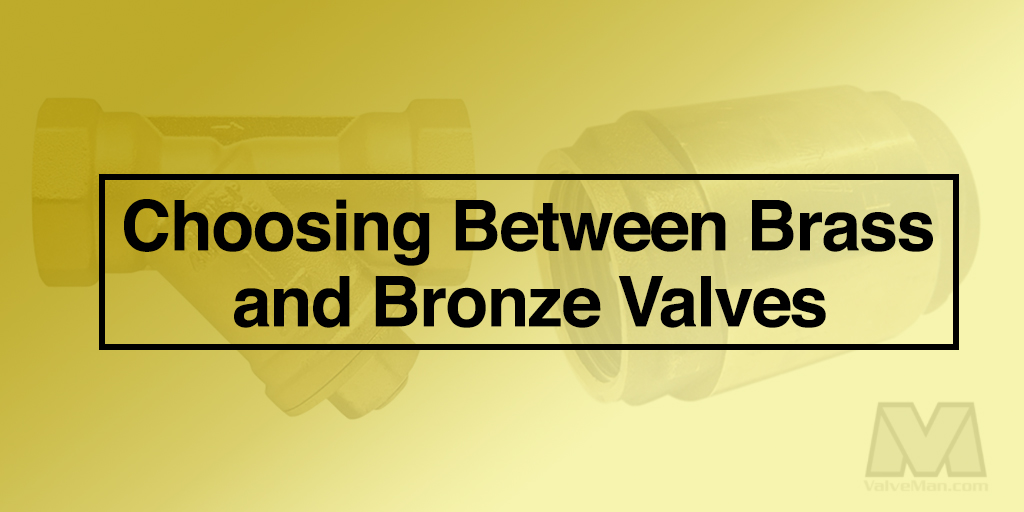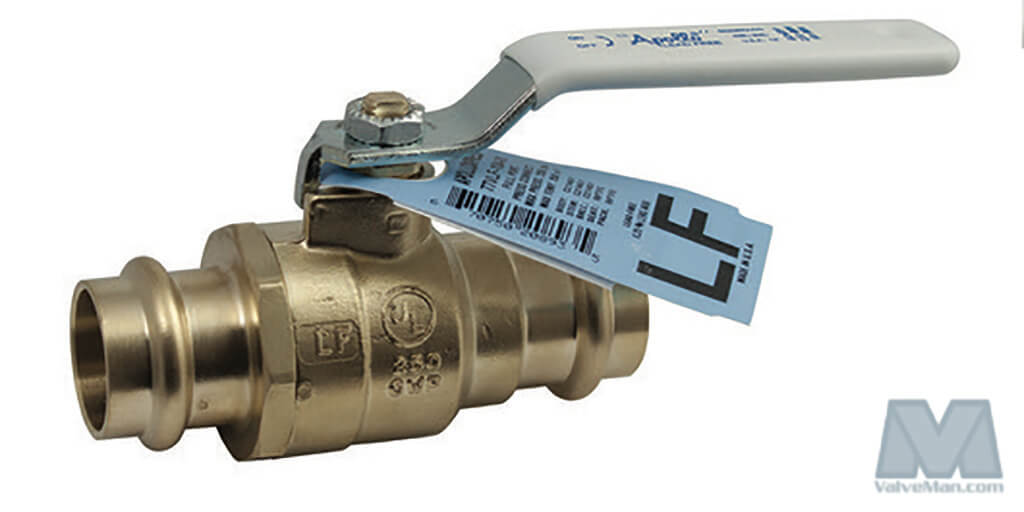Choosing Between Bronze and Brass Valves
Posted by Gilbert Welsford on Oct 10th 2016

While a valve's intended application often determines its composition, as one media or another may be more compatible, it's not always clear as to why this is true. Choices of materials, however, are limited to man's metallurgical prowess. Two of the most common materials used to produce valves are bronze and brass. This preference came about because both metals are extremely malleable. Both are man-made combinations of natural metallurgical elements: brass is an alloy made from copper and zinc, while bronze--one of the oldest alloys--is made primarily from copper and tin. Valves produced from either metal provide numerous and various advantages, though which one is correct for your application--and which one is better--may be debatable.
Bronze Valves
The Romans were probably the first to fashion flow control valves--very similar to those of today--out of bronze as early as the 1st Century B.C. Piping was manufactured out of lead, as were the welds connecting systems together. Much like modern bronze valves of today, the Romans used copper, tin, and lead to make the metal malleable, though today's bronze sometimes includes manganese or aluminum as additives, as well as nickel. One drawback of bronze is that valves can only be produced by casting, or by machining cast ingots. The rough exterior of bronze--which is known for porosity and shrinkage cavities--is a direct result of casting (though bronze alloys containing nickel, lead, and bismuth will hold a polish). On the upside, bronze is fairly inexpensive, extremely ductile, and is great for resisting corrosion, particularly from any corrosives similar to seawater.
Shop Popular Brass Valves
[RelatedProducts:1464,1741,1209,605]
Choosing Brass Valves
Even more malleable than bronze, brass is also more versatile, as different combinations of copper and zinc create a wide range of brasses with varying properties. Brass also lends itself well to manufacturing, as it can be cast, forged, heat extruded, or cold drawn in its creation. It is very machinable, and its smooth surface helps keep finishing costs down. Brass is highly corrosion resistant, though high levels of chlorine can break down zinc content. Otherwise, brass is perfect for a variety of media, including natural gas. And, for potable water, brass is a natural choice over bronze, as it typically contains much lower levels of lead than bronze.

Of course, by today's standards, these contrasts and comparisons are rudimentary. Modern metallurgy is far more advanced than what even the Romans may have dreamed of. Today's foundries cast superior bronze alloys which are utilized for countless applications, though use for potable water is slowly being phased out. Likewise, modern brass alloys that resist dezincification--a problem associated with standard extruded brass (because of the zinc content)--are being produced via hi-tech fabricating techniques using chemicals and heat. These breakthroughs in metallurgy help to negate a need for lead in the mix, and increase the longevity of piping and valves, ensuring the continued use of brass for years to come. But, while brass enjoys several advantages over bronze, don't count it out just yet. Lead Free Bronze valves (bronze valves meeting or exceeding Clean Water Act lead restrictions) are readily available, and are generally the first choice for water pipes with diameters under 3" when keeping costs down is a must. Coincidentally, it's no mystery that both bronze and brass are favored as valve material by numerous industries utilizing piping systems, as both alloys have excellent solderability characteristics.
Shop Popular Bronze Valves
[RelatedProducts:604,1539,1981,94]
If this article has helped you understand the difference between bronze and brass valves, and you would like more information about modern valve fabrication and choices, you might enjoy reading:
